Iran-Backed Militants Claim Rocket Attacks On US Base In Syria

The Islamic Resistance in Iraq, an umbrella group representing several Iran-backed factions, has claimed responsibility for launching two rocket attacks on US forces in Syria on Monday.

The Islamic Resistance in Iraq, an umbrella group representing several Iran-backed factions, has claimed responsibility for launching two rocket attacks on US forces in Syria on Monday.
The attack on the Conoco Base in Deir Ezzor marks the 164th attack on US facilities and personnel in Syria and Iraq in the past 96 days, escalating since October 7 when Iran-backed Hamas invaded Israel. Iran's proxies have since launched attacks on the US in response to the country's support of Israel's right to defend itself in the face of the Hamas attacks which killed 1,200 mostly civilians and saw over 250 more taken hostage to Gaza.
“In adherence to our continuous resistance policy against American forces in Iraq and the region, and in response to the Zionist regime's actions against the people of Gaza, our fighters launched multiple rockets at the American base in the Conoco oil field in eastern Deir Ezzor," the group said.
Currently, the United States has several hundred troops stationed in northern and eastern Syria, primarily engaged in the international coalition against ISIS.
The coalition bases in the region have faced intermittent attacks over recent years but not to the extent seen since October 7. While the Iranian government has consistently denied any direct involvement in the attacks by Hamas, Tehran claims that the proxies operate independently, in spite of the fact the militias are the brainchild of Iran's supreme leader as a weapon against both Israel and the West.
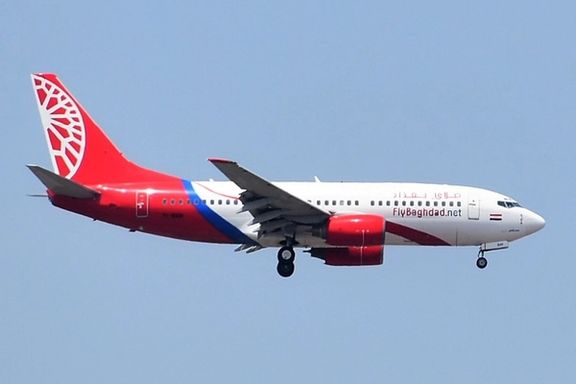
Amid simmering Middle East tensions, the US and UK have announced new rounds of sanctions against financial and logistic supply networks of Iran’s proxies.
On Monday, the US Department of the Treasury’s Office of Foreign Assets Control (OFAC) designated Iraqi airline Fly Baghdad and its CEO, Basheer Abdulkadhim Alwan al-Shabbani, for helping Iran’s Revolutionary Guard’s extraterritorial Qods (Quds) Force (IRGC-QF) and its proxy groups in Iraq, Syria, and Lebanon.
The new measures also include designating three leaders and supporters of one of the IRGC-QF’s main militias in Iraq, Kata’ib Hizballah (Kata'ib Hezbollah or KH), as well as a business that moves and launders funds for the group, officially listed as a terrorist organization by Japan, the United Arab Emirates, and the United States.
According to the Treasury, Iraqi airline Fly Baghdad has for years supported the operations of the IRGC-QF and its proxies by delivering materiel and personnel throughout the region. “Fly Baghdad flights have delivered shipments of weapons to Damascus International Airport in Syria for transfer to members of the IRGC-QF and Iran-aligned militia groups on the ground in Syria, including the Syrian Arab Republican Guard, Lebanese Hezbollah, KH, and the KH-affiliated Abu al-Fadl al-Abbas Brigade.”
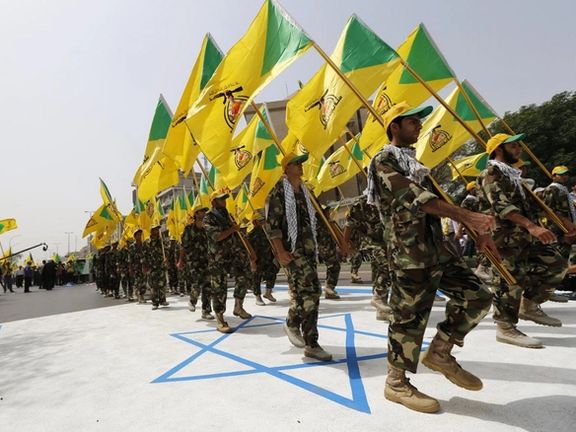
Fly Baghdad, which has a fleet of eight aircraft including six Boeing 737s, has delivered the groups a range of weapons, including Iranian-made Fateh, Zulfiqar, and al-Fajr series missiles, as well as AK-47s, RPG-7s, and other grenades and machine guns. The airline has also been involved in the transfer of hundreds of Iraqi fighters, including fighters affiliated with the US-designated Iranian proxy militia Asa’ib Ahl al-Haq (AAH), in support of the Iranian proxies’ attacks on Israel on October 7.
Underscoring the ongoing threat the IRGC-QF and its proxy network pose to US personnel and the region, the Treasury said Kata’ib Hizballah has carried out a series of sharply escalating drone and missile attacks against American personnel in Iraq and Syria since Hamas’s attack on Israel on October 7.
Monday's sanctions came a day after US Central Command announced that multiple ballistic missiles and rockets were launched by Iranian-backed militants in western Iraq targeting al-Assad Airbase, which hosts US troops. “A number of US personnel are undergoing evaluation for traumatic brain injuries,” read the statement by CENTCOM.
“Iran and its proxies have sought to abuse regional economies and use seemingly legitimate businesses as cover for funding and facilitating their attacks,” said Under Secretary for Terrorism and Financial Intelligence, Brian E. Nelson. “The United States will continue to disrupt Iran’s illicit activities aimed at undermining the stability of the region.”
Also on Monday, the US, UK and Australia announced new sanctions on key figures in the financial networks of Hamas and Palestinian Islamic Jihad (PIJ). The measure targets networks of Hamas-affiliated financial exchanges in Gaza, their owners, and associates, and particularly financial facilitators that have played key roles in funds transfers, including cryptocurrency transfers, from the IRGC-QF to Hamas and the PIJ.
Britain's foreign office said the sanctions target Zuheir Shamlakh, a Gaza-based financial facilitator known as Hamas’s "main money changer" and a key figure involved in the group's shift towards cryptocurrencies who helped transfer large sums of money from Iran to Hamas ahead of the group's October 7 atrocities which saw at least 1,200 mostly civilians murdered and another 250 taken hostage in Gaza.
“Over the last several years, members of the Shamlakh family have become the main end point for funds transferred from the IRGC-QF to Hamas and PIJ in Gaza,” said the US Treasury.
Zuhair has used his companies Al-Markaziya Li-Siarafa (Al-Markaziya) and Arab China Trading Company to channel funds for the Izz al-Din al Qassam Brigades (al-Qassam Brigades), the military wing of Hamas. Gaza-based financial facilitators Ahmed Shamlakh (Ahmed), Alaa Shamlakh (Alaa), and Imad Shamlakh (Imad), also serve as key players in the financial flow from Iran to Hamas and PIJ.
“Hamas has sought to leverage a variety of financial transfer mechanisms, including the exploitation of cryptocurrency, to channel funds to support the group’s terrorist activities,” Nelson added.
According to the UK's Foreign Secretary David Cameron, “These sanctions send a clear message to Hamas: the UK and our partners are committed to ensuring there is no hiding place for those financing terrorist activities.”
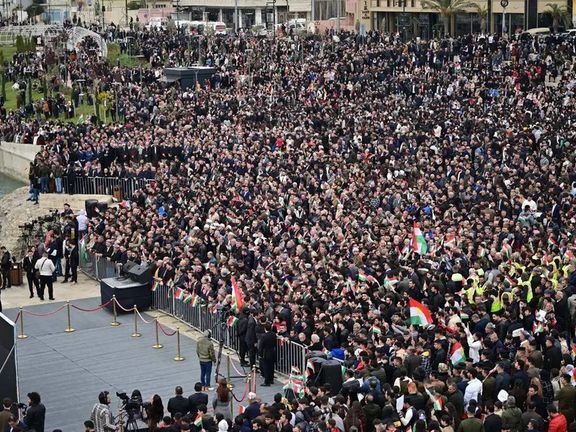
Thousands took to the streets in the Kurdistan region of Iraq on Sunday to denounce the IRGC missile attack on Erbil which killed four civilians and injured six others.
The IRGC launched ballistic missiles on Erbil last Monday citing the destruction of alleged "spy headquarters" and the dispersal of "anti-Iranian groups" as its objectives, causing a diplomatic furore in its wake. Iraq summoned Tehran’s chargé d’affaires in Baghdad to condemn the move and withdrew its ambassador from Tehran.
Hassan Hassanzadeh, the commander of the IRGC in Tehran, declared that the strikes were executed under the orders of Ali Khamenei, the Supreme Leader of the Islamic Republic.
While the IRGC claimed to have targeted a Mossad headquarters in the Kurdistan region of Iraq, referring to Israel's spy agency, Masrour Barzani, the Prime Minister of the Kurdistan Region categorically denied Iran's claims. Barzani condemned the attack on Erbil as a “crime against the Kurdish people,” accusing Iran of killing innocent civilians in its missile strikes.
The Arab League condemned the IRGC's attack, characterizing it as a “blatant aggression on the sovereignty of Iraq.” The condemnation rejected all "justifications and pretexts" put forward by the Islamic Republic for the attack, emphasizing the potential threat it poses to regional peace and security.
In a press conference on Monday, Naser Kanaani, the spokesman for the Iranian Ministry of Foreign Affairs, said the attacks were due to "tangible threats to Iran's national security" suggesting an imminent threat on its border.
Iraqis have since initiated a campaign to boycott Iranian products, encouraging the substitution of Iranian goods with locally-produced or Arab alternatives.
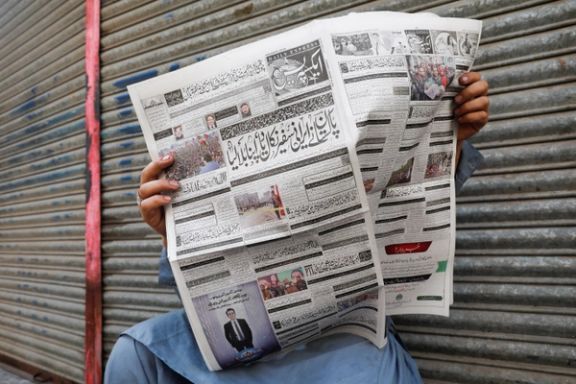
After last week’s IRGC missile and drone attack in Iraq and Pakistan, tensions remain high with both countries, despite Tehran’s attempts to show an air of normality.
Tehran has tried to quash talk of trouble with Pakistan, but Pakistan's Counter-Terrorism Department (CTD) has said it arrested a suspect in the 2019 assassination attempt on a top Pakistani cleric, saying the suspect is a "trained terrorist" who belongs to the Zainebiyoun Brigade, a militant group of Pakistani Shiites created by Iran to fight in Syria.
Pakistan’s CTD said that Syed Mohammad Mehdi was arrested in an operation at a bazaar in Karachi, accusing him of targeting clerics in the provincial capital and of working for Iranian intelligence.
This seems to be a signal by Islamabad that not everything is resolved with Iran, and the Pakistani government remains vigilant about any further actions by Tehran.
Similarly, Kurds in Iraq held a large protest rally on Monday to condemn Iran’s ballistic missile strikes on their capital Erbil a week ago that killed a Kurdish businessman.
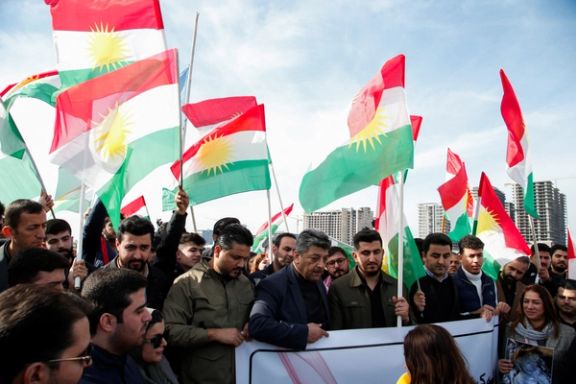
Khuram Waris, who heads the CTD in Karachi, told Radio Mashaal that Mehdi is a Pakistani citizen who received training in a "neighboring country”, implicitly pointing the finger at Iran. He said:” He is a member of the Zainabiyoun Brigade. He was involved in many attacks, including the attack on Mufti Taqi Usmani in Karachi."
Usmani, a religious scholar and former top court judge in Pakistan, narrowly escaped an assassination attempt in Karachi in 2019. Two of Usmani's bodyguards were killed in the attack, for which no group claimed responsibility.
The IRGC’s January 16 attacks against Jaish al-Adl, a US designated terrorist group accused by Tehran of carrying out deadly attacks in Iran, were justified by Tehran as its "legitimate and legal right to deter national security threats."
Pakistan condemned the strike on its territory and responded on January 18 with air strikes against separatist groups allegedly hiding out on Iranian territory.
In Tehran, the government is trying to act as if it is business as usual, but the tension is palpable. Foreign Ministry spokesman Nasser Kanaani said that while the recent attack on “terrorist bases” was due to what he called “an immediate necessity to deal with terrorists ready to operate”, suggesting an imminent attack had been thwarted, he stressed that relations between the two nations are “strong and fraternal”.
Addressing the media, he said: “Terrorism is a common threat of both sides, and Tehran and Islamabad emphasize on fighting it, and the recent action cannot create a disruption in the relations between the two countries.
But as Pakistan continues to claim the terror on its soil is backed by the Iranian government itself, the question remains as to how diplomatic relations move forward.
In a span of 24 hours, Iran’s IRGC launched missile and drone strikes on three neighboring countries, claiming ‘revenge’ for civilians and troops killed in the past few weeks. Having hit several locations in Syria and Iraqi Kurdistan Monday, Pakistan was the final country to feel the wrath of Iran’s Quds Forces.
Pakistan swiftly responded by a targeted assassination of IRGC Colonel Hossein-Ali Javdanfar, killed in a car near the Pakistan border. Two of his bodyguards were also killed.
The incident led to both Iraq and Pakistan withdrawing its ambassadors and Pakistan threatening to permanently close borders. The issue has also been raised to the Arab League which is set to hold an emergency meeting in the coming days or weeks.
The Sunni group, Jaish al-Adl, could just be the fan to the flames of a relationship which was never entirely on solid ground and with the latest attacks on Pakistan, look to face a troubled future.
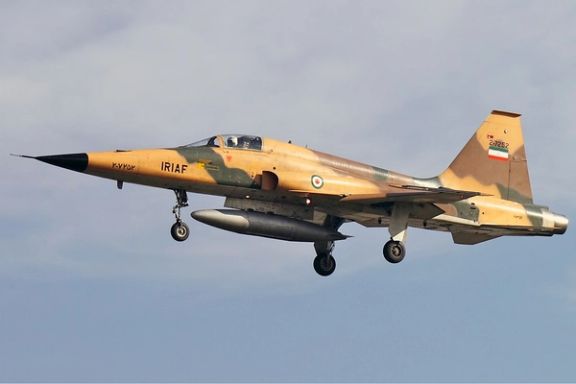
In the wake of a huge sound echoing through the industrial zone of Garmsar, officials claim the noise was merely the sonic boom produced by a fighter jet breaking the sound barrier.
In a bid to calm fears, the state news agency IRNA, citing an anonymous source, reported on Monday that the “terrifying sound experienced in Garmsar was a result of the breaking of the sound barrier by a fighter jet.” The incident unfolded at approximately 9:15 local time, with the audible disturbance reaching the airspace of Garmsar, it added.
While IRNA did not disclose the affiliation of the fighter jet, the Islamic Republic of Iran Broadcasting (IRIB) referred to the aircraft as "educational" without specifying its organizational ownership.
Ahmad Rivadeh, the political, security, and social deputy of the Semnan governor, stated that the sonic boom occurred during a training flight mission. “Investigations are underway to determine the exact cause of the incident,” he claimed.
Behnam Bakhtiyari, head of the industry and mining office in Garmsar, earlier confirmed the sound of an explosion but stressed that the cause remains unknown. However, Governor Reza Khani asserted that no explosions occurred in any part of the city.
Since mid-2020, a series of explosions and fires have plagued various Iranian military, nuclear, and industrial sites, including pipelines and refineries.
One year ago, a blaze engulfed an Iranian military industrial factory in Esfahan, with suspicions pointing towards a drone strike as the cause.
Although authorities have not offered exhaustive clarifications for the incidents, they have linked several prominent sabotage attacks on facilities to Israel.
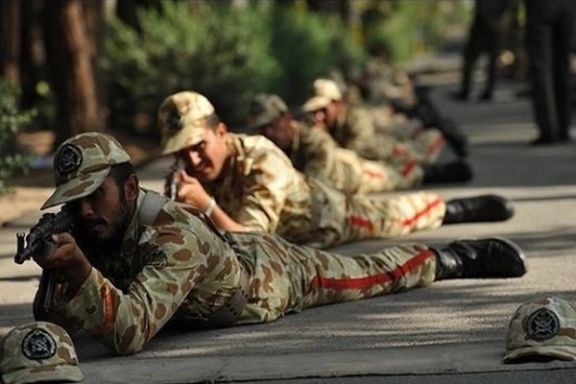
An army conscript who killed five colleagues in the squad room while on duty in Kerman barracks, has been apprehended near Zarinshahr county, officials say.
Naser Farshid, commander of law enforcement in Kerman province revealed that “the apprehended soldier was found in possession of two Kalashnikov rifles and six magazines containing a total of 180 rounds.” His motive is currently under investigation.
Citing the Islamic Republic Army, Tasnim News Agency has released the names of the five conscripted soldiers who lost their lives in the shooting.
The incident follows earlier reports in Iranian media about soldiers resorting to violence against their comrades or military authorities during their service. The motives behind such incidents are not officially disclosed by the military authorities of the Islamic Republic.
In a similar incident last year, a soldier in a barracks in the city of Deylam killed four other soldiers after taking them hostage. Iranian media attributed the soldier's motives for the killings and hostage-taking to not having been allowed to take leave.
Military service in Iran, known as "compulsory military service," is obligatory for all Iranian men above the age of 18, with certain exemptions. The mandatory 21 to 24-month service has faced criticism due to the physical and psychological pressures on soldiers, sometimes leading to outcomes such as suicide or violent acts.